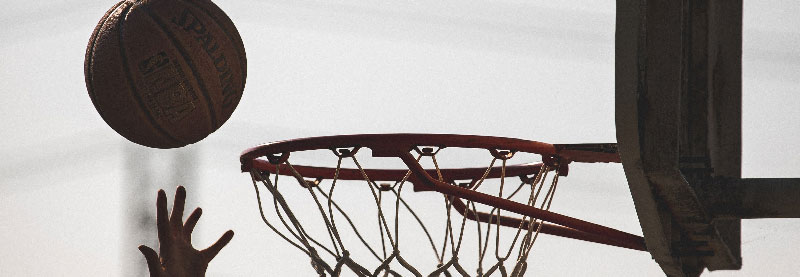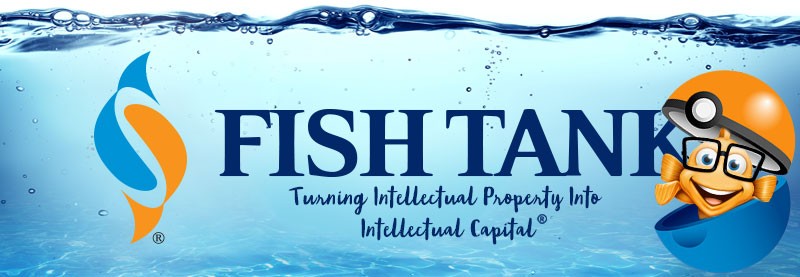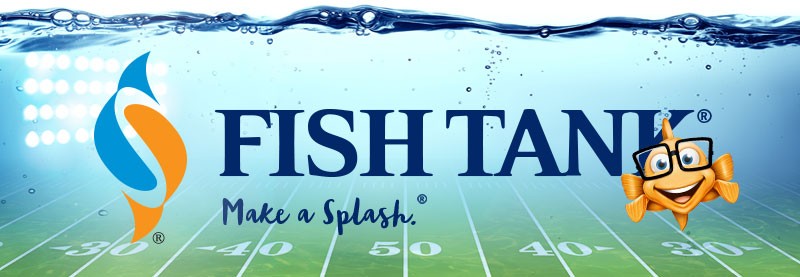Intellectual Property Insights from Fishman Stewart
Mini Article – Volume 22, Issue 21
Share on Social

LUKA DONCIC is Owned by His Mom. Maybe.
The 2022-2023 NBA season kicked off just a couple days ago. While some may say Luka Doncic owns the league (figuratively speaking), Doncic’s mom owns LUKA DONCIC (literally speaking). More accurately, Doncic’s mother, Mirjam Poterbin, owns a U.S. trademark registration for the logo shown below:
Poterbin had assisted Doncic with his business affairs since he signed with Real Madrid at age 13 until recently. In 2018, Poterbin filed the above application that included a written consent signed by then-19-year-old Doncic. Consents are routinely used at the Trademark Office to demonstrate a grant of rights to adopt one’s name, image, or likeness—or “NIL” rights as they are often referred to—as (part of) a trademark. In receiving Doncic’s written consent, Poterbin received the right to use LUKA DONCIC as an indicator of source of various goods and services.
Now age 23, Doncic is attempting one of his trademark trick shots (pun intended).
Doncic attempted to unilaterally revoke his consent in 2021, and in September 2022, petitioned to cancel his mother’s registration. Notably, Doncic has filed three new trademark applications incorporating his name, and two have been rejected by the U.S. Trademark Office, citing the LUKA DONCIC 7 registration as being “confusingly similar.” (The third application is awaiting examination.)
Poterbin just this week moved to dismiss the cancellation. Her motion argues that Doncic executed a valid consent and that his revocation attempt is invalid as unilateral, among other legal arguments exchanged.
In basketball terms, Doncic’s mom is blocking his shot.
The dispute raises broad-reaching questions: Should a 19-year old’s consent to their NIL rights be binding as they mature? Should unilateral revocation of NIL rights be permitted under certain circumstances? Should it matter that this was a mother who managed the business affairs of her child?
These questions are particularly poignant in the modern era of U.S. college athletics that, since June 2021, permits 18- to 23-year-old “student-athletes” to monetize their NIL rights.
Winning this cancellation could prove to be among the tougher buckets of Doncic’s young career.
To learn more about trademark registration and name, image, or likeness consents, contact Alex at ajohnson@fishstewip.com, 248-594-0614, or find him on LinkedIn.
Alexander JSW Johnson is an attorney at Fishman Stewart with over nine years of experience in trademark and intellectual property matters. He works in the firm’s trademark practice group. He holds a B.A. in Art (studio emphasis) and Journalism. Check out his full bio here.
Published October 21, 2022


Related Content from Fishman Stewart
In a recent decision, the U.S. Court of Appeal for the Eighth Circuit affirmed a jury verdict holding that the use of the "Success Kid" meme by a congressman's reelection campaign for fundraising purposes did not qualify as fair use.
In February 2024, proposed legislation was introduced in US House of Representatives which would extend copyright protection to golf courses. The bill is titled “Bolstering Intellectual Rights against Digital Infringement Enhancement Act” or the “BIRDIE Act”.
June is Pride Month, which honors the 1969 Stonewall Uprising in Manhattan and recognizes the impact that lesbian, gay, bisexual, and transgender (LGBTQ+) individuals have had on history locally, nationally, and internationally. The United States Patent and Trademark Office flies the Pride Flag and promotes the Pride community’s contributions with programming offered annually.
June is Pride Month. This year we are celebrating with some IP tips for drag performers! Drag performers can protect their intellectual property by registering the copyrights in their original works of music, choreography, and comedy sketches.
You’re rarely more than a few yards from Finny’s favorite chips, semiconductor chips to be precise. But what exactly is a semiconductor chip?
"May the 4th Be With You," also known as Star Wars Day, takes place annually on May 4th. The phrase is a pun on the iconic Star Wars catchphrase "May the Force be with you."
First, a big “thank you” to all our readers who have given feedback on our newsletter. We appreciate your interest and insights. It is always a treat to hear from you! Second, we wanted to provide you with updates on some of our most popular articles
“Palworld”— a computer game created and published by Japanese developer Pocket Pair. Released as an early access game in January 2024, it sold over seven million copies on the computer platform Steam in the first five days and had nearly 20 million players in the first two weeks.
This year’s Super Bowl featured a thrilling overtime victory for the Kansas City Chiefs over the San Francisco 49ers. With estimates as high as 123 million viewers, America's premier sporting event also serves as a grand stage for creativity and intellectual property protections that enhance the game’s success.
Valentine’s Day is just around the corner and jewelry sales are usually around $6 billion USD in the United States alone. In 2021, the US Customs and Border Protection agency seized over $1 billion USD worth of counterfeit pieces of jewelry.
IDENTIFYING, SECURING AND ADVANCING CREATIVITY®











